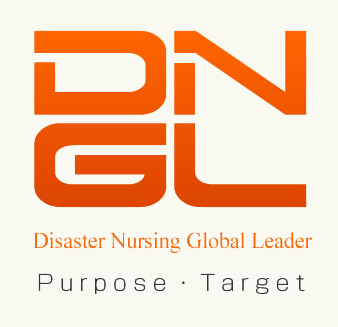

On February 13, 2016, Disaster Nursing Global Leader Degree Program (DNGL) organized the international seminar themed “Leadership in Inter-Organizational Collaboration during Disaster Response” at the Chiba University. This international seminar invited three expert speakers who have leadership experiences in the multi-disciplinary and multi-sectoral cooperation during disaster response to bring disaster nursing think about the nature of leadership and the ability to enable the decision making and behavior when cooperating with multi-professional and interdisciplinary teams.
The first speaker was Dr. Tener Goodwin Veenema, PhD, MPH, RN, FAAN. Dr. Veenema is an Associate Professor and Pediatric Emergency Nurse Practitioner at the Johns Hopkins School of Nursing and at the Center for Refugee and Disaster Response. She is committed to improving the health and safety of children following global disaster events and complex human emergencies.
Second speaker was Dr. Paul Gregg Greenough, MD, MPH. Dr. Greenough is Assistant Professor of Medicine at Harvard Medical School and continues to practice emergency medicine at Brigham and Women's Hospital as an attending physician and faculty member of Division of International Health and Humanitarian Programs in the Department of Emergency Medicine. He has worked extensively in applying epidemiologic methods to public health problems within conflict and disaster affected populations.
And the last speaker was Mr. Tsukasa Katsube. Mr. Katsube is a Consultant for Emergency Response Secretariat of Japan Disaster Relief Team Japan International Cooperation Agency (JICA).
Furthermore, the panel discussion on natural disasters and global partnerships seeks to spread knowledge and awareness of natural disasters and how the global community approaches these situations. By sharing the unique experiences and knowledge gathered through these tragic and disastrous events and the support from the international community, we can recognize the impact of natural disasters upon the community and the importance of global partnerships. This panel discussion aimed to start a conversation that will encourage ongoing dialogue of how to create a safer and more efficient response to disasters.
The following day on February 14 was the mini-seminar with presentation and discussion with three expert speakers for the all DNGL students. From this session could be concluded that nurses working in disaster zones need a support person or group to help them deal with their concerns about triage and other difficult situations. Nurses themselves are a vital resource in any attempt to save human lives during and after disasters. Every nurse should know what is available in the national, provincial or prefectural, and local government organizations to deal with planning, response, and mitigation. Nurses need to know what plans exist and what values are imbedded in them. Some nurses should be centrally involved as members of an ongoing committee to develop disaster protocols that set guidelines about standards of care and allocation of scarce resources.
Disaster may strike at any time and in any form. We learned that it is extremely difficult to do what we must in times of disaster, unless we have prepared in advance. By taking full advantage of the experience, knowledge, and imagination that we have gained, we have to prepare now so that we can always do our best to respond to any disaster in the future.
(summarized by the DNGL Students of University of Kochi)

|
HOME
>
report
>
The DNGL International Seminar in Chiba 2016:
The DNGL International Seminar in Chiba 2016: “Leadership in Inter-Organizational Collaboration during Disaster Response” |
|
|
This program has been adopted as "Program for Leading Graduate Schools of 2012" by MEXT.
|
